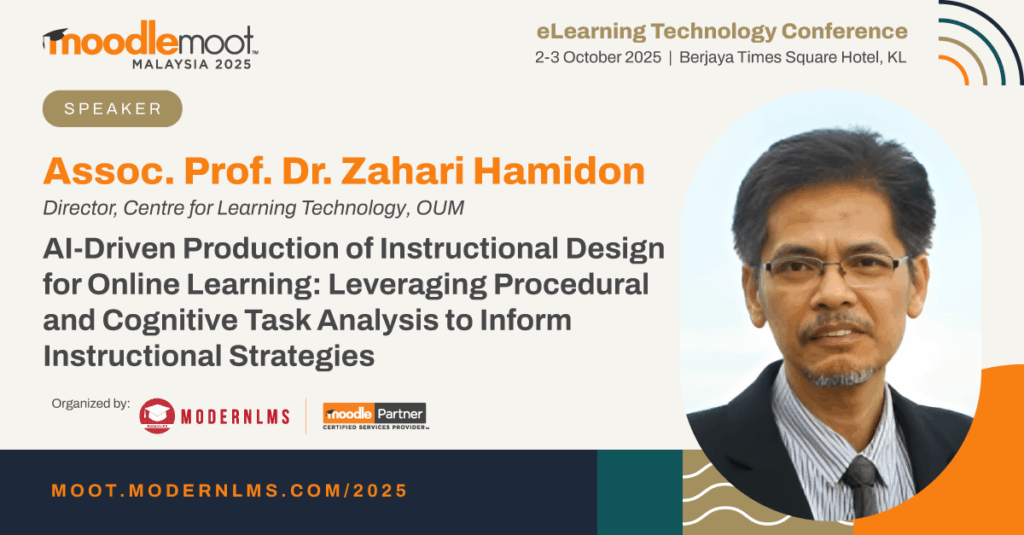Speakers
Associate Professor Dr. Zahari Hamidon

Company
Open University Malaysia (OUM)
Speaker Brief
Associate Professor Dr. Zahari Hamidon serves as the Director of the Centre for Learning Technology and an Associate Professor at the Faculty of Education, Open University Malaysia. With an academic foundation in Art and Design (Fine Art) from MARA University of Technology (UiTM), Malaysia, and advanced qualifications in Computers in Education (M.Ed.) and Instructional Technology (Ph.D.) from the University of Malaya, Dr. Zahari’s career in education spans more than three decades. Beginning his journey as a teacher in the mid 1980s, he has since taken on diverse roles as lecturer, instructional designer, and researcher, contributing to both national and international academic communities, including University Brunei Darussalam and Open University Malaysia.
Dr. Zahari’s expertise extends across instructional and learning design, virtual learning, interface design, and digital media. His research interests emphasize the use of technology to improve user experience and learning effectiveness, encompassing MOOCs, cognitive load theory, usability studies, and experiential learning. More recently, his scholarly focus has shifted to prompt engineering in AI generative systems, an area exploring how language prompts shape the quality and effectiveness of AI-driven content generation in education. His leadership in research, publications, and doctoral supervision combined with his role as external examiner and consultant reflect his deep commitment to advancing instructional technology and educational innovation.
Presentation Title
AI-Driven Production of Instructional Design for Online Learning: Leveraging Procedural and Cognitive Task Analysis to Inform Instructional Strategies
Presentation Description
In his session, “AI-Driven Production of Instructional Design for Online Learning: Leveraging Procedural and Cognitive Task Analysis to Inform Instructional Strategies,” Dr. Zahari will examine how Artificial Intelligence can transform the instructional design process for online learning environments. The presentation highlights the application of Procedural Task Analysis (PTA) and Cognitive Task Analysis (CTA) as structured approaches to deconstruct learning content into procedural steps and cognitive decision points, enabling the creation of more effective and scalable instructional strategies. By integrating AI generative tools into these processes, instructional designers can streamline workflows and better align learning objectives, content delivery, and assessment design particularly within Moodle based systems.
The session will offer practical demonstrations of how AI can support instructional planning, such as AI assisted mapping of learner tasks, prompt engineering for content generation, and the use of scaffolding, worked examples, and multimedia integration. Attendees will gain insight into how this research informed, technology-enhanced framework can optimize learner engagement, manage cognitive load, and improve knowledge retention in digital learning ecosystems. Ultimately, the session positions AI not just as a supportive tool, but as a strategic partner in designing future-ready, learner centered online education.
